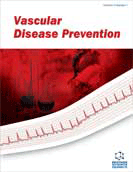Abstract
Left ventricular hypertrophy (LVH) has adverse prognostic implications in human populations. There is considerable genetic and experimental evidence that agents which increase the generation of cyclic GMP (either via stimulation of natriuretic peptide receptors or via activation of nitric oxide synthase) within cardiomyocytes have antihypertrophic effects. The effects of cyclic GMP appear to be mediated via cyclic GMP-dependent kinases, which in turn will affect a variety of intracellular targets that include L-type Ca2+ currents, RhoA, troponin I, Na+ / H+ exchangers and/or the cytoskeleton-associated muscle LIM protein. Recent evidence from clinical trials in hypertensive patients has indicated that LVH should be a target for treatment above and beyond blood pressure control. Although we do not know yet whether regression of LVH is beneficial in non-hypertensive patients as well, the information available to date indicates that several drugs could reduce left ventricular hypertrophy via activation of the cyclic GMP/cyclic GMPdependent kinase pathway, and thus hold promise to reduce cardiovascular-related mortality and/or morbidity.
Keywords: cyclic gmp, left ventricular hypertrophy, natriuretic peptides, bradykinin, nitric oxide, guanylate cyclase


